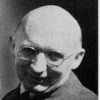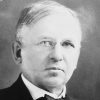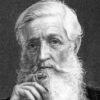Making a book is a craft, like making a clock; it needs more than native wit to become an author.
[C’est un métier que de faire un livre, comme de faire une pendule: il faut plus que de l’esprit pour être auteur.]
Jean de La Bruyère (1645-1696) French essayist, moralist
The Characters [Les Caractères], ch. 1 “Of Works of the Mind [Des Ouvrages de l’Esprit],” § 3 (1.3) (1688) [tr. Stewart (1970)]
(Source)
(Source (French)). Alternate translations:
To make a Book, is like making a Pendulum, a Man must have Experience, as well as Wit to succeed in it.
[Bullord ed. (1696)]
Tis as much a Trade to make a Book, as to make a Watch; there's something more than Wit requisite to make an Author.
[Curll ed. (1713)]
To make a Book, is no less a Trade than to make a Clock; something more than Wit is necessary to form an Author.
[Browne ed. (1752)]
To make a book is as much a trade as to make a clock; something more than intelligence is required to become an author.
[tr. Van Laun (1885)]
Quotations about:
intelligence
Note not all quotations have been tagged, so Search may find additional quotes on this topic.
Of all creation’s bounty realized,
God’s greatest gift, the gift in which mankind
is most like Him, the gift by Him most prized,
is the freedom he bestowed upon the will.
All his intelligent creatures, and they alone,
were so endowed, and so endowed are still.[Lo maggior don che Dio per sua larghezza
fesse creando, e a la sua bontate
più conformato, e quel ch’e’ più apprezza,
fu de la volontà la libertate;
di che le creature intelligenti,
e tutte e sole, fuore e son dotate.]Dante Alighieri (1265-1321) Italian poet
The Divine Comedy [Divina Commedia], Book 3 “Paradiso,” Canto 5, l. 19ff (5.19-24) [Beatrice] (1320) [tr. Ciardi (1970)]
(Source)
(Source (Italian)). Alternate translations:
That gem above all price by wifdom giv'n.
The most distinguish'd boon of fav'ring Heav'n,
The Stamp of Godhead on the human breast,
By him most priz'd, is Liberty of Choice;
A gift by none beneath the ambient Skies
But happy rationals alone possest.
[tr. Boyd (1802), st. 5]
Supreme of gifts, which God creating gave
Of his free bounty, sign most evident
Of goodness, and in his account most priz’d,
Was liberty of will, the boon wherewith
All intellectual creatures, and them sole
He hath endow’d.
[tr. Cary (1814)]
The greatest gift that God, creating, gave
Of his great bounty, and his goodness cost,
And that which he appreciated the most,
Was human liberty and our free will;
With which the creatures of intelligence,
And they alone, were dowered as with sense.
[tr. Bannerman (1850)]
The greatest gift that in his largess God
Creating made, and unto his own goodness
Nearest conformed, and that which he doth prize
Most highly, is the freedom of the will,
Wherewith the creatures of intelligence
Both all and only were and are endowed.
[tr. Longfellow (1867)]
The greatest gift which God of His bounty made in creating, and the most conformed to His goodness, and that which He most values, was the freedom of the will, wherewith the creatures that have intelligence all, and they only, were and are endowed.
[tr. Butler (1885)]
The greatest gift which God's creating grace
Made in His largess, to His clemency
The most conformed, and prized as first in place
Was of the will the perfect liberty,
With which the creatures of intelligence
Were dowered, and are, and they alone.
[tr. Minchin (1885)]
The greatest gift which God in His largess bestowed in creating, and the most conformed unto His goodness and that which He esteems the most, was the freedom of the will, with which all the creatures of intelligence, and they alone, were and are endowed.
[tr. Norton (1892)]
The greatest gift God of his largess made at the creation, and the most conformed to his own excellence, and which he most prizeth,
was the will's liberty, wherewith creatures intelligent, both all and only, were and are endowed.
[tr. Wicksteed (1899)]
The greatest gift that God in His bounty made in creation, the most conformable to His goodness and the one He accounts the most precious, was the freedom of the will, with which the creatures with intelligence, all and only these, were and are endowed.
[tr. Sinclair (1939)]
Of all the gifts God in His bounty extreme
Made when creating, most conformable
To His own goodness, and in His esteem
Most precious, was the liberty of the will,
With which creatures that are intelligent
Were all endowed, they only, and are so still.
[tr. Binyon (1943)]
The greatest gift of God’s largesse, when He
Created all, most prized by Him, and best,
As most akin to His own quality,
Was the will's freedom, crown of all the rest,
Whereof all creatures made intelligent,
They all, they only, were and are possessed.
[tr. Sayers/Reynolds (1962)]
The greatest gift which God in His bounty
bestowed in creating, and to His own goodness
the most conformed, and that which He prizes the most,
was of the will the freedom,
with which the creatures that have intelligence,
they all and they alone, were and are endowed.
[tr. Singleton (1975)]
The greatest gift which God in his open-handedness
Gave in creation, and the gift which most conformed
To his own excellence, and which he most values,
Was that of freedom of the will,
With which creatures created intelligent,
Each and all of them, were and are endowed.
[tr. Sisson (1981)]
The greatest gift the magnanimity
of God, as He created, gave, the gift
most suited to His goodness, gift that He
most prizes, was the freedom of the will;
those beings that have intellect -- all these
and none but these -- received and do receive this gift.
[tr. Mandelbaum (1984)]
The greatest gift that our bounteous Lord
bestowed as the Creator, in creating,
the gift He cherishes the most, the one
most like Himself, was freedom of the will,
All creatures with intelligence, and they
alone, were so endowed both then and now.
[tr. Musa (1984)]
The greatest gift that ever in his bountifulness God gave in creating, and the most conformed to his goodness, the one that is most prized,
was the freedom of the will, with which the creatures with intelligence, all of them and only they, were and are endowed.
[tr. Durling (2011)]
The greatest gift that God made at the Creation, out of his munificence, the one that most fitted his supreme goodness, and which he values most, is Free Will, with which intelligent creatures, all and sundry, were, and are, endowed.
[tr. Kline (2002)]
The greatest gift that God, in spacious deed,
made, all-creating -- and most nearly formed
to His liberality, most prized by Him --
was liberty in actions of the will,
with which all creatures of intelligence --
and they alone -- both were and are endowed.
[tr. Kirkpatrick (2007)]
The greatest gift that God in His largesse
gave to creation, the most attuned
to His goodness and that He accounts most dear,
was the freedom of the will:
all creatures possessed of intellect,
all of them and they alone, were and are so endowed.
[tr. Hollander/Hollander (2007)]
The greatest gift that God, in infinite bounty,
Bestowed on His creation, and the quality
Most like His goodness, as well as what He prices,
Was freedom of will, granted only to creatures
Of intelligence -- exclusively for them,
No others thus endowed.
[tr. Raffel (2010)]
Elitism is repulsive when based upon external and artificial limitations like race, gender, or social class. Repulsive and utterly false — for that spark of genius is randomly distributed across all cruel barriers of our social prejudice. We therefore must grant access — and encouragement — to everyone; and must be increasingly vigilant, and tirelessly attentive, in providing such opportunities to all children. We will have no justice until this kind of equality can be attained. But if only a small minority respond, and these are our best and brightest of all races, classes, and genders, shall we deny them the pinnacle of their soul’s striving because all their colleagues prefer passivity and flashing lights? Let them lift their eyes to hills of books, and at least a few museums that display the full magic of nature’s variety. What is wrong with this truly democratic form of elitism?
Stephen Jay Gould (1941-2002) American paleontologist, geologist, biologist
Dinosaur in a Haystack: Reflections in Natural History, Part 5, ch. 18 “Cabinet Museums: Alive, Alive, O!” (1995)
(Source)
It is a sad thing when men have neither enough intelligence to speak well nor enough sense to hold their tongues.
[C’est une grande misère que de n’avoir pas assez d’esprit pour bien parler, ni assez de jugement pour se taire.]Jean de La Bruyère (1645-1696) French essayist, moralist
The Characters [Les Caractères], ch. 5 “Of Society and Conversation [De la Société et de la Conversation],” § 18 (5.18) (1688) [tr. Van Laun (1885)]
(Source)
(Source (French)). Alternate translations:
'Tis a sad thing when Men have neither Wit enough to speak well, nor Sense enough to hold their tongues.
[Bullord ed. (1696)]
'Tis a sad thing when Men have neither Wit enough to speak well, nor Judgment enough to hold their Tongues.
[Curll ed. (1713)]
It is a sad Thing when Men have neither Wit to speak well, nor Judgment to hold their Tongues.
[Browne ed. (1752)]
It is a great misfortune to have neither wit enough to talk well nor sense enough to keep silence.
[tr. Stewart (1970)]
Yes, poor doggie, you are very stupid, very stupid indeed, compared with us clever men, who understand all about politics and philosophy, and who know everything in short, except what we are, and where we came from, and whither we are going, and what everything outside this tiny world and most things in it are.
Jerome K. Jerome (1859-1927) English writer, humorist [Jerome Klapka Jerome]
“On Cats and Dogs,” The Idle Thoughts of an Idle Fellow (1889)
(Source)
A man is not necessarily intelligent because he has plenty of ideas, any more than he is a good general because he has plenty of soldiers.
[On n’est point un homme d’esprit pour avoir beaucoup d’idées, comme on n’est pas un bon général pour avoir beaucoup de soldats.]Nicolas Chamfort (1741-1794) French writer, epigrammist (b. Nicolas-Sébastien Roch)
Products of Perfected Civilization [Produits de la Civilisation Perfectionée], Part 1 “Maxims and Thoughts [Maximes et Pensées],” ch. 7, ¶ 446 (1795) [tr. Mathers (1926)]
(Source)
(Source (French)). Alternate translations:
A man is not clever simply because he has many ideas, just as he is not necessarily a good general because he has many soldiers.
[tr. Hutchinson (1902)]
One is not a man of wit simply because one has a great many ideas, any more than one is a good general simply because one has a great many soldiers.
[tr. Merwin (1969)]
Having a great many ideas doesn't betoken a fine mind, just as having a great many soldiers doesn't betoken a fine general.
[tr. Dusinberre (1992), ¶ 445]
Having a lot of ideas does not give a person esprit, in the same way that having a lot of soldiers doesn't make a person a good general.
[tr. Sinicalchi, ¶ 445]
An intelligent man is lost if he does not add strength of character to his intelligence.
[Un homme d’esprit est perdu, s’il ne joint pas à l’esprit l’énergie de caractère.]
Nicolas Chamfort (1741-1794) French writer, epigrammist (b. Nicolas-Sébastien Roch)
Products of Perfected Civilization [Produits de la Civilisation Perfectionée], Part 1 “Maxims and Thoughts [Maximes et Pensées],” ch. 4, ¶ 277 (1795) [tr. Mathers (1926)]
(Source)
(Source (French)). Alternate translations:
A person of intellect, without energy added to it, is a failure.
[Source (1893)]
A man of wit is lost, if to his wit he does not join energy of character.
[tr. Hutchinson (1902)]
A man of intelligence is lost if his intelligence is not combined with energy of character.
[tr. Merwin (1969)]
A man of intellect is lost if he does not ally strength of mind to strength of character.
[tr. Pearson (1973)]
Any intelligent man who lacks character is lost.
[tr. Parmée (2003), ¶ 173]
A man with spirit is lost if he doesn't add to his intelligence an energetic character.
[tr. Sinicalchi]
The power of Thought, — the magic of the Mind!
George Gordon, Lord Byron (1788-1824) English poet
The Corsair, Canto 1, st. 8, l. 184 (1814)
(Source)
The abilities -- plus success -- that Conrad uses to control his crew.
For when the faculty of intellect
is joined with brute force and with evil will,
no man can win against such an alliance.[Ché dove l’argomento de la mente
s’aggiugne al mal volere e a la possa,
nessun riparo vi può far la gente.]Dante Alighieri (1265-1321) Italian poet
The Divine Comedy [Divina Commedia], Book 1 “Inferno,” Canto 31, l. 55ff (31.55) (1309) [tr. Musa (1971)]
(Source)
Why Nature no longer allows human-like giants, while still producing whales and elephants.
(Source (Italian)). Alternate translations:
For where the mind to bad Intention's join'd,
And with a Pow'r what's ill design'd to act,
None can himself from such a force defend.
[tr. Rogers (1782), l. 49ff]
But not the forest tribes, nor finny race,
With equal rage their native walks deface,
As he whose deadly arm by Reason's light
Directed falls, and mocks the warding hand;
Conspiring realms in vain his pow'r withstand,
In vain embattled hosts defend their right.
[tr. Boyd (1802), st. 9]
For when brute force
And evil will are back’d with subtlety,
Resistance none avails.
[tr. Cary (1814)]
For discourse of mind,
Wedded with power and inbred lust of wrong,
Had left nor help nor rescue for mankind.
[tr. Dayman (1843)]
For where [the instrument] of [the] mind is joined to evil will and potency, men can make no defence against it.
[tr. Carlyle (1849)]
For when a reasoning and a subtle mind
Is joined, besides, to evil will and power,
Who can resist? -- for all defence must cower.
[tr. Bannerman (1850)]
For when the reasoning faculty combines
With evil will and with destructive pow'r,
Then there remains no more defence for man.
[tr. Johnston (1867)]
For where the argument of intellect
Is added unto evil will and power,
No rampart can the people make against it.
[tr. Longfellow (1867)]
For where the equipment of the mind is joined to illwill and to power, folk can make no rampart against it.
[tr. Butler (1885)]
For where the assistance of the intellect
Is added unto evil will and power,
'Gainst it no refuge could mankind erect.
[tr. Minchin (1885)]
For where the faculty of the mind is added to evil will and to power, the human race can make no defense against it.
[tr. Norton (1892)]
For where the force of intellect is joined to evil will, and power to do such will, mankind is helpless to find resource against it.
[tr. Sullivan (1893)]
For, where the equipment and the use of reason
Are joined to ill intent and power of action,
No sort of refuge can folk make against it.
[tr. Griffith (1908)]
For where the equipment of the mind is joined to evil will and to power men can make no defence against it.
[tr. Sinclair (1939)]
For if with the mind's instrument unite
Power and an evil purpose both at once,
Men have no means against such force to fight.
[tr. Binyon (1943)]
For where the instrument of thinking mind
Is joined to strength and malice, man’s defence
Cannot avail to meet those powers combined.
[tr. Sayers (1949)]
For where the instrument of intelligence
is added to brute power and evil will,
mankind is powerless in its own defense.
[tr. Ciardi (1954)]
For where the instrument of the mind is added to an evil will and to great power, men can make no defense against it.
[tr. Singleton (1970)]
For where the mind’s acutest reasoning
is joined to evil will and evil power,
there human beings can’t defend themselves.
[tr. Mandelbaum (1980)]
For, where the argument of reason is
Joined with an evil will and potency,
There is no possible defence for man.
[tr. Sisson (1981)]
The power of the mind, along with that
Of immense strength, upon an evil will
Then people will have no defense from it.
[tr. Pinsky (1994), l. 52ff]
For where sharpness of mind is joined to evil will and power, there is no defence people can make against them.
[tr. Durling (1996)]
Where the instrument of mind is joined to ill will and power, men have no defence against it.
[tr. Kline (2002)]
For when the powers of working intellect
are wed to strength and absolute illwill,
then humans cannot find a place to hide.
[tr. Kirkpatrick (2006)]
For when the power of thought
is coupled with ill will and naked force
there is no refuge from it for mankind.
[tr. Hollander/Hollander (2007)]
For when the thinking powers of human brains
Are tools of malicious will and enormous strength,
Smaller creatures like men have no defense.
[tr. Raffel (2010)]
For only when ill will and massive strength
Are joined with mental power does it arise
That the invincible is born.
[tr. James (2013), l. 58ff]
A computer is a stupid machine with the ability to do incredibly smart things, while computer programmers are smart people with the ability to do incredibly stupid things. They are, in short, a dangerously perfect match.
Bill Bryson (b. 1951) American–British journalist and author. [William McGuire Bryson]
Notes From a Big Country, “Lost in Cyber Land” (1998)
(Source)
ENOBARBUS: When valor preys on reason,
It eats the sword it fights with.William Shakespeare (1564-1616) English dramatist and poet
Antony and Cleopatra, Act 3, sc. 13, ll. 240ff (3.13.240-241) (1607)
(Source)
The vulgar are never really happy with their luck, even when it is best, or unhappy with their intellect, even when it is worst.
[Vulgaridad es no estar contento ninguno con su suerte, aun la mayor, ni descontento de su ingenio, aunque el peor.]
Baltasar Gracián y Morales (1601-1658) Spanish Jesuit priest, writer, philosopher
The Art of Worldly Wisdom [Oráculo Manual y Arte de Prudencia], § 209 (1647) [tr. Maurer (1992)]
(Source)
Gracian frames this as an old saying. (Source (Spanish)). Alternate translations:
No man is content with his own condition, though it be the best: nor dissatisfied with his wit, though it be the worst.
[Flesher ed. (1685)]
... the common prejudice that any one is satisfied with his fortune, however great, or unsatisfied with his intellect, however poor it is.
[tr. Jacobs (1892)]
None is content with his fortune even though the best, and none is discontented with his mind, even though the worst.
[tr. Fischer (1937)]
Clear thinking requires courage rather than intelligence.
Thomas Szasz (1920-2012) Hungarian-American psychiatrist, educator
The Untamed Tongue: A Dissenting Dictionary (1990)
(Source)
Most people do not mind being surpassed in good fortune, character, or temperament, but no one, especially not a sovereign, likes to be surpassed in intelligence. For this is the king of attributes, and any crime against it is lèse-majesté.
[Bien se hallará quien quiera ceder en la dicha, y en el genio; pero en el ingenio, ninguno, cuanto menos una soberanía. Es éste el atributo rey, y así cualquier crimen contra él fue de lesa Majestad.]
Baltasar Gracián y Morales (1601-1658) Spanish Jesuit priest, writer, philosopher
The Art of Worldly Wisdom [Oráculo Manual y Arte de Prudencia], § 7 (1647) [tr. Maurer (1992)]
(Source)
See Johnson. (Source (Spanish)). Alternate translations:
There are many who will yield in good fortune, or in good humour; but no body will yield in Wit, and least of all a Sovereign. Wit is the King of Attributes, and by consequent, every Offence against it, is no less a Crime than Treason.
[Flesher ed. (1685)]
There be some that will grant you precedence in good luck or good temper but none in good sense, least of all a prince; for good sense is a royal prerogative, any claim to that is a case of lèse-majesté.
[tr. Jacobs (1892)]
Some will deign to take place after you in matters of luck or of heart, but in intelligence, none, least of all a sovereign: for this is the sovereign attribute, wherefore any attack upon it is a crime against majesty.
[tr. Fischer (1937)]
Men who don’t like girls with brains don’t like girls.
Mignon McLaughlin (1913-1983) American journalist and author
The Second Neurotic’s Notebook, ch. 3 (1966)
(Source)
Originally published in McLaughlin's "The Neurotic's Notebook" column in The Atlantic, some time in 1965.
Those people who think they know everything are a great annoyance to those of us who do.
Isaac Asimov (1920-1992) Russian-American author, polymath, biochemist
(Spurious)
Sometimes quoted without the initial "Those".
The citationless attribution of this quip to Asimov cannot be traced back further than 2001, several years after his death. The earliest version found is a filler item in The Saturday Evening Post (6 May 1961), attributed to humor columnist Harold Coffin: "The fellow who thinks he knows it all is especially annoying to those of us who do."
More discussion here: The Fellow Who Thinks He Knows It All Is Especially Annoying To Those of Us Who Do – Quote Investigator.
Civilization is to groups what intelligence is to individuals. It is a means of combining the intelligence of many to achieve ongoing group adaptation.
Censorship always defeats its own purpose, for it creates, in the end, the kind of society that is incapable of exercising real discretion, incapable, that is, of doing an honest or intelligent job, and thus guarantees a steady intellectual decline.
Henry Steele Commager (1902-1998) American historian, writer, activist
“Free Enterprise in Ideas,” Freedom, Loyalty and Dissent (1954)
(Source)
Originally published in the Saturday Review (1952), based on a speech to the Advertising Council's American Round Table, New York City (1951).
Perhaps the hardest thing for humans to do is to imagine the world as it is imagined by others. We tend to confuse acting in accordance with the goals and values of the society in which we live with rationality; we tend to confuse intelligence with thinking in accordance with those goals and values. And, of course, we are always inclined to see events as predetermined — and we are almost always wrong.
Masha Gessen (b. 1967) Russian-American journalist, author, translator, activist
“The Fundamental Uncertainty of Mueller’s Russia Indictments,” The New Yorker (20 Feb 2018)
(Source)
Man the master, ingenious past all measure,
past all dreams the skills within his grasp —
he forges on, now to destruction,
now again to greatness. When he weaves in
the laws of the land, and the justice of the gods
that bind his oaths together
he and his city rise high —
but the city casts out
that man who weds himself to inhumanity
thanks to reckless daring. Never share my hearth,
never think my thoughts, whoever does such things.[σοφόν τι τὸ μηχανόεν τέχνας ὑπὲρ ἐλπίδ᾽ ἔχων
τοτὲ μὲν κακόν, ἄλλοτ᾽ ἐπ᾽ ἐσθλὸν ἕρπει,
νόμους γεραίρων χθονὸς θεῶν τ᾽ ἔνορκον δίκαν,
370ὑψίπολις: ἄπολις ὅτῳ τὸ μὴ καλὸν
ξύνεστι τόλμας χάριν. μήτ᾽ ἐμοὶ παρέστιος
γένοιτο μήτ᾽ ἴσον φρονῶν ὃς τάδ᾽ ἔρδει.]Sophocles (496-406 BC) Greek tragic playwright
Antigone, l. 365ff, Stasimon 1, Antistrophe 2 [Chorus] (441 BC) [tr. Fagles (1982)]
(Source)
Original Greek. Alternate translations:
Wise in his craft of art
Beyond the bounds of expectation,
The while to good he goes, the while to evil.
Honouring his country's laws and heaven's oathbound right,
High is he in the state!
But cityless is he with whom inherent baseness dwells;
When boldness dares so much,
No seat by me at festive hearth,
No seat by me in sect or party,
For him that sinneth!
[tr. Donaldson (1848)]
Passing the wildest flight thought are the cunning and skill,
That guide man now to the light, but now to counsels of ill.
If he honors the laws of the land, and reveres the Gods of the State
Proudly his city shall stand; but a cityless outcast I rate
Whoso bold in his pride from the path of right doth depart;
Ne'er may I sit by his side, or share the thoughts of his heart.
[tr. Storr (1859)]
Inventive beyond wildest hope, endowed with boundless skill,
One while he moves toward evil, and one while toward good,
According as he loves his land and fears the Gods above.
Weaving the laws into his life and steadfast oath of Heaven,
High in the State he moves but outcast he,
Who hugs dishonour to his heart and follows paths of crime
Ne'er may he come beneath my roof, nor think like thoughts with me.v [tr. Campbell (1873)]
Possessing resourceful skill, a subtlety beyond expectation he moves now to evil, now to good. When he honors the laws of the land and the justice of the gods to which he is bound by oath, his city prospers. But banned from his city is he who, thanks to his rashness, couples with disgrace. Never may he share my home, never think my thoughts, who does these things!
[tr. Jebb (1891)]
Cunning beyond fancy's dream is the fertile skill which brings him, now to evil, now to good. When he honours the laws of the land, and that justice which he hath sworn by the gods to uphold, proudly stands his city: no city hath he who, for his rashness, dwells with sin. Never may he share my hearth, never think my thoughts, who doth these things!
[tr. Jebb (1917)]
O clear intelligence, force beyond all measure!
O fate of man, working both good and evil!
When the laws are kept, how proudly his city stands!
When the laws are broken, what of his city then?
Never may the anarchic man find rest at my hearth,
Never be it said that my thoughts are his thoughts.
[tr. Fitts/Fitzgerald (1939), l. 285ff]
O wondrous subtlety of man, that draws
To good or evil ways! Great honor is given
And power to him who upholdeth his country’s laws
And the justice of heaven.
But he that, too rashly daring, walks in sin
In solitary pride to his life’s end.
At door of mine shall never enter in
To call me friend.
[tr. Watling (1947)]
Clever beyond all dreams
the inventive crat that he has
which may drive him one time or another to well or ill.
When he honors the laws of the land and the gods' sworn right
high indeed is his city; but stateless is the man
who dares to dwell with dishonor. Not by my fire,
never to share my thoughts, who does these things.
[tr. Wyckoff (1954)]
Surpassing belief, the device and
Cunning that Man has attained,
And it bringeth him now to evil, now to good.
If he observe Law, and tread
The righteous path God ordained,
Honored is he; dishonored, the man whose reckless heart
Shall make him join hands with sin:
May I not think like him,
Nor may such an impious man
Dwell in my house.
[tr. Kitto (1962)]
He has cunning contrivance,
Skill surpassing hope,
And so he slithers into wickedness sometimes,
Other times into doing good.
If he honors the law of the land
And the oath-bound justice of the gods,
Then his city shall stand high.
But no city for him if he turns shameless out of daring.
He will be no guest of mine,
He will never share my thoughts,
If he goes wrong.
[tr. Woodruff (2001)]
Possessing a means of invention, a skillfulness beyond expectation,
now toward evil he moves, now toward good.
By integrating the laws of the earth
and justice under oath sworn to the gods,
he is lofty of city. Citiless is the man with whom ignobility
because of his daring dwells.
May he never reside at my hearth
or think like me,
whoever does such things.
[tr. Tyrell/Bennett (2002)]
And though his wisdom is great in discovery -- wisdom beyond all imaginings!
Yet one minute it turns to ill the next again to good.
But whoever honours the laws of his land and his sworn oaths to the gods, he’ll bring glory to his city.
The arrogant man, on the other hand, the man who strays from the righteous path is lost to his city. Let that man never stay under the same roof as me or even be acquainted by me!
[tr. Theodoridis (2004)]
The qualities of his inventive skills
bring arts beyond his dreams and lead him on,
sometimes to evil and sometimes to good.
If he treats his country’s laws with due respect
and honours justice by swearing on the gods,
he wins high honours in his city.
But when he grows bold and turns to evil,
then he has no city. A man like that --
let him not share my home or know my mind.
[tr. Johnston (2005), l. 415ff]
With clever creativity beyond expectation, he moves now to evil, now to good. The one who observes the laws of the land and justice, our compat with the gods, is honored in the city, but there is no city for one who participates in what is wrong for the sake of daring. Let him not share my hearth, nor let me share his ideas who had done these things.
[tr. Thomas (2005)]
I been readin’ ’bout how maybe they is planets peopled by folks with ad-vanced brains. On the other hand, maybe we got the most brains … maybe our intellects is the universe’s most ad-vanced. Either way, it’s a mighty soberin’ thought.
Walt Kelly (1913-1973) American animator and cartoonist [Walter Crawford Kelly, Jr.]
“Pogo” [Porky Pine] (20 Jun 1959)
Often paraphrased: "Thar’s only two possibilities: Thar is life out there in the universe which is smarter than we are, or we’re the most intelligent life in the universe. Either way, it’s a mighty sobering thought."
More information:
This is an extraordinarily irritating book, written by one of those people who smugly believe that, having lost their faith, they must ipso facto have found their reason.
Christopher Hitchens (1949-2011) English intellectual, polemicist, socio-political critic
“David Mamet’s Right-Wing Conversion,” New York Times (17 Jun 2011)
(Source)
Reviewing David Mamet’s The Secret Knowledge.
Men have made an idol of luck as an excuse for their own thoughtlessness. Luck seldom measures swords with wisdom. Most things in life quick wit and sharp vision can set right.
Democritus (c. 460 BC - c. 370 BC) Greek philosopher
Frag. 119 (Diels) [tr. Bakewell (1907)]
(Source)
Bakewell lists this under "The Golden Sayings of Democritus." Freeman notes this as one of the Gnômae, from a collection called "Maxims of Democratês," but because Stobaeus quotes many of these as "Maxims of Democritus," they are generally attributed to the latter. Alternate translations:
- "Men have fashioned an image of Chance as an excuse for their own stupidity. For Chance rarely conflicts with intelligence, and most things in life can be set in order by an intelligent sharpsightedness." [tr. Freeman (1948)]
- "Men fashioned the image of chance as an excuse for their own thoughtlessness; for chance rarely fights with wisdom, and a man of intelligence will, by foresight, set straight most things in his life." [tr. Barnes (1987)]
Many much-learned men have no intelligence.
[Πολλοὶ πολυμαθέες νοῦν οὐκ ἔχουσιν.]
Democritus (c. 460 BC - c. 370 BC) Greek philosopher
Frag. 64 (Diels) [tr. Freeman (1948)]
(Source)
Diels citation "64. (190 N.) DEMOKRATES. 29."; collected in Joannes Stobaeus (Stobaios) Anthologium III, 4, 81. Freeman notes this as one of the Gnômae, from a collection called "Maxims of Democratês," but because Stobaeus quotes many of these as "Maxims of Democritus," they are generally attributed to the latter.
Alternate translations:
- "There are many who know many things, yet are lacking in wisdom." [tr. Bakewell (1907)]
- "Many who have learned much possess no sense." [tr. Barnes (1987)]
- "Many who have learned a lot do not have a mind." [tr. @sentantiq (2018)]
- "Many, though widely read, possess no sense." [Source]
We’re here to use our intelligence, yes, but that ain’t everything. It’s our duty to see through things, but also to see things through. Or I’ll put it another way. We’re not primarily put on this earth to see through one another, but to see one another through.
Peter De Vries (1910-1993) American editor, novelist, satirist
Let Me Count the Ways (1965)
(Source)
This is an example of what those who have studied history well know: When stupidity is considered patriotism, it is unsafe to be intelligent.
It is a mark of genius not to astonish but to be astonished.
Aubrey Menen (1912-1989) British writer, novelist, satirist, theatre critic
The Prevalence of Witches, ch. 4 (1947)
(Source)
Many complain of their looks, but none of their brains.
(Other Authors and Sources)
Italian proverb
Also noted as a Jewish or Yiddish proverb.
This is also often cited to Sally Koslow, Little Pink Slips, ch. 5 (2007); it appears there as ""Many complain of their looks, few of their brains," but is described as an unoriginal needlepoint on a pillow cover.
See also La Rochefoucauld for a similar construction.
It takes a lot of things to prove you are smart, but only one thing to prove you are ignorant.
I have no time to scold, and I learned thirty years ago it was foolish to scold. I have enough trouble overcoming my own limitations without fretting over the fact God has not seen fit to distribute evenly the gift of intelligence.
John Wanamaker (1838-1922) American merchant, marketer, philanthropist, Postmaster General
Quoted in Herbert Adams Gibbons, John Wanamaker, Vol. 2 (1926)
(Source)
Variant paraphrase: "It's foolish to scold people. I have enough trouble overcoming my own limitations without fretting over the fact that God didn't see fit to distribute brains equally."
I divide my officers into four classes: the clever, the lazy, the industrious, and the stupid. Each officer possesses at least two of these qualities. Those who are clever and industrious are fitted for the highest staff appointments. Use can be made of those who are stupid and lazy. The man who is clever and lazy however is for the very highest command; he has the temperament and nerves to deal with all situations. But whoever is stupid and industrious is a menace and must be removed immediately!
Kurt von Hammerstein-Equord (1878-1943) German general
(Attributed)
Possibly apocryphal. Quoted (unconfirmed) in Horst Poller, Bewältigte Vergangenheit. Das 20. Jahrhundert, erlebt, erlitten, gestaltet [Conquered Past. The 20th century, witnessed, endured, shaped] (2010). Sometimes cited to Truppenführung [Troop Leading] (1933), the German Army Field Manual, but not found there. Also attributed to Erich von Manstein.
At twenty the will rules; at thirty the intellect; at forty the judgment.
[A los veinte años reina la voluntad, a los treinta el ingenio, a los cuarenta el juicio.]
Baltasar Gracián y Morales (1601-1658) Spanish Jesuit priest, writer, philosopher
The Art of Worldly Wisdom [Oráculo Manual y Arte de Prudencia], § 298 (1647) [tr. Jacobs (1892)]
(Source)
(Source (Spanish)). Alternate translations:
At twenty years of age the Will reigns; at thirty the Wit; at fourty, the Judgment.
[Flesher ed. (1685)]
At twenty years desire rules us, at thirty, expediency, at forty, judgment.
[tr. Fischer (1937)]
When one is twenty, the will reigns; a thirty, the intelligence; at forty, judgment.
[tr. Maurer (1992)]
See also:
At 20 years of age the Will reigns; at 30 the Wit; at 40 the Judgment.
[Benjamin Franklin, Poor Richard's Almanack (1741)
“We canna just rush in, ye ken.”
A big bearded Feegle raised his hand. “Point ‘o order, Big Man. Ye can just rush in. We always just rush in.”
“Aye, Big Yan, point well made. But ye gotta know where ye’re just gonna rush in. Ye cannae just rush in anywhere. It looks bad, havin’ to rush oout again straight awa’.”
O’Brien knew everything. A thousand times better than Winston, he knew what the world was really like, in what degradation the mass of human beings lived and by what lies and barbarities the Party kept them there. He had understood it all, weighed it all, and it made no difference: all was justified by the ultimate purpose. What can you do, thought Winston, against the lunatic who is more intelligent than yourself, who gives your arguments a fair hearing and then simply persists in his lunacy?
George Orwell (1903-1950) English writer [pseud. of Eric Arthur Blair]
Nineteen Eighty-Four (1949)
(Source)
No one would have believed in the last years of the nineteenth century that this world was being watched keenly and closely by intelligences greater than man’s and yet as mortal as his own; that as men busied themselves about their various concerns they were scrutinized and studied, perhaps almost as narrowly as a man with a microscope might scrutinize the transient creatures that swarm and multiply in a drop of water. With infinite complacency men went to and fro over this globe about their little affairs, serene in their assurance of their empire over matter. It is possible that the infusoria under the microscope do the same. No one gave a thought to the older worlds of space as sources of human danger, or thought of them only to dismiss the idea of life upon them as impossible or improbable. It is curious to recall some of the mental habits of those departed days. At most terrestrial men fancied there might be other men upon Mars, perhaps inferior to themselves and ready to welcome a missionary enterprise. Yet across the gulf of space, minds that are to our minds as ours are to those of the beasts that perish, intellects vast and cool and unsympathetic, regarded this earth with envious eyes, and slowly and surely drew their plans against us. And early in the twentieth century came the great disillusionment.
H.G. Wells (1866-1946) British writer [Herbert George Wells]
The War of the Worlds, Book 1, ch. 1 (1898)
(Source)
When action grows unprofitable, gather information; when information grows unprofitable, sleep.
As the man put it: Any sufficiently advanced technology is indistinguishable from magic. Any sufficiently advanced alien intelligence is indistinguishable from God — the angry monotheistic sadist subtype. And the elder ones … aren’t friendly. (See? I told you I’d rather be an atheist!)
Lady Linette had warned them of this. “Try not to think it glamorous, ladies. Intelligencer work is nine-tenths discontented ennui, and one-tenth abject terror. Rather like falling in love.”
She hung up and I set out the chess board. I filled a pipe, paraded the chessmen and inspected them for French shaves and loose buttons, and played a championship tournament game between Gortchakoff and Meninkin, seventy-two moves to a draw, a prize specimen of the irresistible force meeting the immovable object, a battle without armour, a war without blood, and as elaborate a waste of human intelligence as you could find anywhere outside an advertising agency.
Some of you are really smart. You know who you are.
Some of you are really thick. Unfortunately, you don’t know who you are.
It was not the absence of intelligence which led us into trouble but our unwillingness to draw unpleasant conclusions from it.
There is a large number of women whose brains are closer in size to the gorillas than to the most developed male brains. This inferiority is so obvious that no one can contest it for a moment; only its degree is worth discussion. All psychologists who have studied the intelligence of women … recognize today that they represent the most inferior forms of human evolution, and that they are closer to children and savages than to an adult, civilized man.
I could wile away the hours
Conferrin’ with the flowers,
Consultin’ with the rain;
And my head I’d be scratchin’
While my thoughts were busy hatchin’,
If I only had a brain.
Even fools who keep silent are considered wise;
when they close their lips, they are deemed intelligent.The Bible (The Old Testament) (14th - 2nd C BC) Judeo-Christian sacred scripture [Tanakh, Hebrew Bible], incl. the Apocrypha (Deuterocanonicals)
Proverbs 17:28 [NRSV (2021 ed.)]
(Source)
See Twain.
Alternate translations:
Even a fool, when he holdeth his peace, is counted wise: and he that shutteth his lips is esteemed a man of understanding.
[KJV (1611)]
If a fool can hold his tongue, even he can pass for wise, and pass for clever if he keeps his lips tight shut.
[JB (1966)]
After all, even fools may be thought wise and intelligent if they stay quiet and keep their mouths shut.
[GNT (1976)]
If the fool holds his tongue, he may pass for wise; if he seals his lips, he may pass for intelligent.
[NJB (1985)]
Fools who keep quiet are deemed wise;
those who shut their lips are smart.
[CEB (2011)]
Even fools who keep silent are deemed wise;
Intelligent, while their mouth is shut.
[RJPS (2023 ed.)]

















































